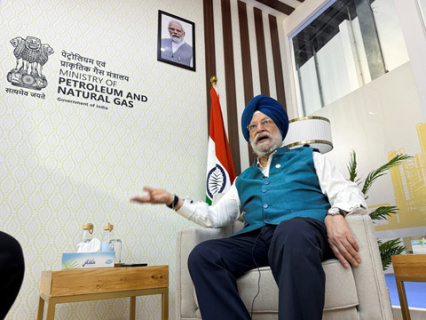
New Delhi is navigating a complex geopolitical landscape as official sources refute claims that India has ceased purchasing Russian oil. This denial, reported by the Indian news agency ANI, comes amidst escalating pressure from Washington, creating a high-stakes standoff over the country’s energy security and its strategic relationship with Moscow.
The situation intensified following reports, cited by Reuters and apparently accepted by U.S. President Donald Trump, that Indian refineries had stopped ordering Russian crude. President Trump publicly praised the supposed move, which coincided with the imposition of 25% U.S. tariffs on Indian goods from August 7 and was accompanied by threats of further penalties for continued energy trade with Russia.
However, both ANI and The New York Times, citing anonymous senior Indian officials, have firmly countered these reports. They assert that there has been no change in policy and that the government has not instructed oil companies to alter their import strategies, indicating that vital energy supplies are continuing to flow uninterrupted from Russia.
A sudden pivot away from Russian energy would present a monumental challenge for India. Russian crude accounts for approximately 35% of its total oil imports, much of it secured under long-term contracts that are difficult to exit. While Minister of Petroleum and Natural Gas Hardeep Singh Puri previously stated that India could source alternatives if necessary, the logistical and economic hurdles to do so remain significant.
The government of Prime Minister Narendra Modi has maintained a conspicuous silence in the face of President Trump’s public statements and threats. This strategic ambiguity is widely interpreted as a tactic to preserve leverage in sensitive, ongoing negotiations for a new trade agreement with the United States. By avoiding a public confrontation, New Delhi appears to be hoping to secure more favorable terms behind closed doors.
This quiet diplomacy, however, has drawn sharp criticism from India’s opposition parties, who accuse the Modi government of being overly submissive to American demands. The main opposition party, the Indian National Congress, has framed any potential halt to Russian oil as a “capitulation to America” and a betrayal of a friendly nation, Russia.
While this domestic political pressure adds another layer to the crisis, it is unlikely to force the government’s hand. Prime Minister Modi’s ruling coalition commands a substantial majority in parliament, and with the next general election years away in 2029, the ultimate decision on how to balance India’s critical relationships with Washington and Moscow rests firmly with him.
